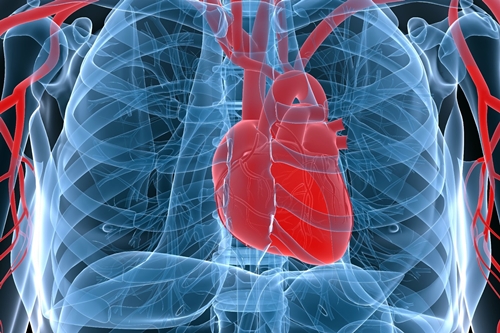4 May 2016. A review of genome and blood test records from a large group of people in Iceland identified genetic sequencing variations associated with risk factors connecting cholesterol levels to heart disease. Results of the analysis, conducted by deCode Genetics in Reykjavik, Iceland, appear this week in the journal Nature Genetics (paid subscription required).
The study, led by deCode Genetics founder and CEO Kári Stefánsson, sought to better understand connections between genetics and levels of cholesterol and fat in the blood stream, which can lead to atherosclerosis and coronary artery disease, the most common form of heart disease and leading cause of death in the U.S. Atherosclerosis, or hardening of the arteries, is a major cause of heart attacks and strokes, when plaque either breaks off or forms clots that block the arteries to the heart or brain. Plaque is made up of cholesterol and other fatty substances, as well as calcium, cellular waste and fibrin, the material that helps blood clot.
The company collects data from 160,000 volunteers in Iceland, more than half the country’s adult population. The company also amassed a genealogical database for the entire country going back 1,000 years to Iceland’s founding as an independent nation. These extensive data sets, combined with the high quality of universal health care in Iceland, says deCode, makes it possible to study most common diseases on a large scale, minimizing the selection bias that can occur in larger and more diverse populations.
The deCode technology correlates two sets of data: variations in the sequence of human genomes, and variations in phenotypes or conditions, such as a disease or physical trait. In this study, the researchers — including colleagues from institutions in Iceland, Netherlands, U.S., and Iran — looked for relationships between genomic sequencing variations and and measures of different types of cholesterol and fat in blood samples, to find those factors that best predict coronary artery disease.
The measures of cholesterol and fat levels examined in the study were high-density lipoprotein or HDL, non-HDL, low-density lipoprotein or LDL cholesterol, and triglycerides. LDL, often called “bad” cholesterol contributes to the build-up of plaque, while HDL or “good” cholesterol helps remove LDL from arteries. Triglycerides are separate type of fat that in high levels are associated with atherosclerosis.
The researchers analyzed whole genome sequencing and health records, including blood test results, from nearly 120,000 residents of Iceland. The analysis confirmed 14 sequencing variations already associated with changes in cholesterol levels, but also identified 13 rarely occurring variations in 9 other genes that were previously not known.
The team then calculated risk scores for the different cholesterol and fat measurements, and assessed the value of those scores to predict coronary artery disease with more than 33,000 people having that disorder, as well as about 236,000 individuals without heart disease for comparison. The results show non-HDL cholesterol levels, a measure of LDL and other types of cholesterol in the blood, did a better job of predicting coronary artery disease than LDL levels alone. In addition, triglyceride levels alone did not correlate with coronary artery disease risk.
“Our findings suggest that risk is best captured by measuring non-HDL cholesterol levels,” says Stefánsson in a company statement, “and this should spur an important conversation within the cardiology community to develop the most sensitive standard for testing for this risk.”
deCode Genetics is a division of the American biopharmaceutical company Amgen. As reported in Science & Enterprise, Amgen acquired deCode Genetics for $415 million in December 2012.
Read more:
- Stem Cells Shown to Improve Heart Failure Health Outcomes
- Crowdsourcing Yields Heart Disease Algorithm
- Hydrogel Injection Tested to Treat Advanced Artery Disease
- Workplace Heart Health Platform in Development
- Hydrogel Aids Stem Cells Repair Heart Functions
* * *


 RSS - Posts
RSS - Posts
[…] Genomic Variations Reveal Cholesterol, Heart Disease Risks […]
[…] Genomic Variations Reveal Cholesterol, Heart Disease Risks […]